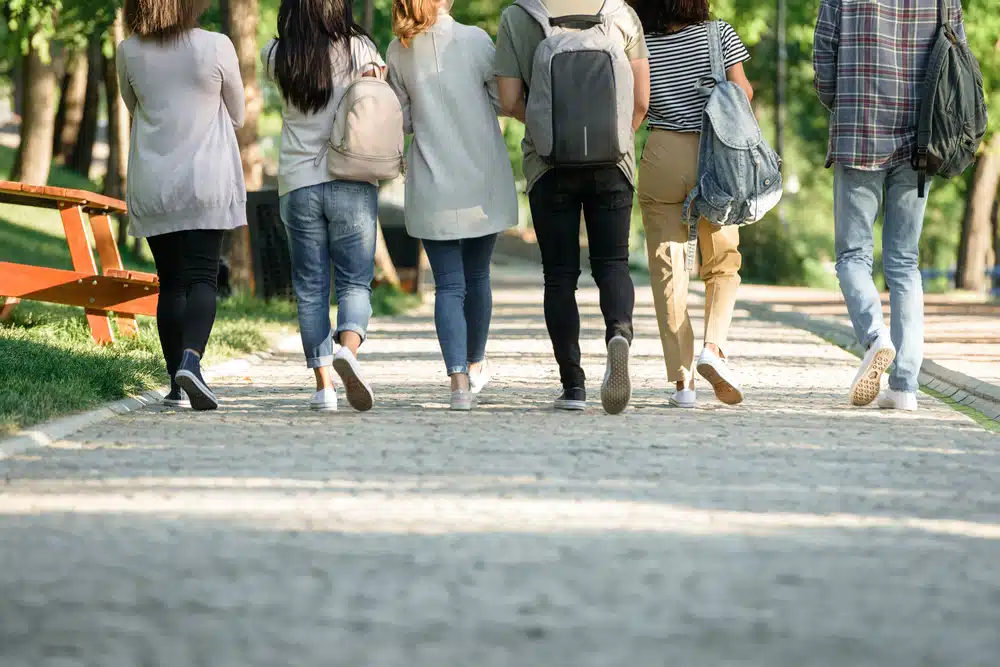Notable Alumni at Harvard
Notable alumni at Harvard University have left indelible marks across various global sectors and disciplines. From innovations in science to groundbreaking arts, their contributions resonate throughout history. Their legacies highlight the transformative power of an exceptional education. Curious about these trailblazers? Let’s embark on this journey and get inspired together.
The Legacy of Harvard University
Harvard University, founded in 1636 in Massachusetts, holds the esteemed title of being the oldest institution of higher education in the United States. With its humble beginnings, the university started with just nine students and a single master. However, it has since flourished into a renowned institution, annually serving over 20,000 students.
Named after the generous benefactor John Harvard, the university was established with the noble intention of nurturing the future leaders of the colony. Little did they know that Harvard would far surpass this goal, becoming a global leader in academia. Its commitment to academic rigor and dedication to excellence have set the standard for institutions worldwide.
The Founding of Harvard University
Harvard University’s founding in 1636 marked a significant milestone in the history of American education. It emerged during a time when the New World was still in its infancy and opportunities for higher learning were scarce. The establishment of Harvard provided a beacon of hope for those seeking intellectual growth and enlightenment.
John Harvard, a clergyman and scholar, played a pivotal role in the university’s inception. His generous donation of books and half of his estate laid the foundation for the institution. Harvard’s vision was to create an environment where students could engage in rigorous intellectual pursuits and develop into well-rounded individuals capable of leading their communities.
Harvard’s Impact on Education
Harvard University’s influence extends far beyond the confines of its campus, with notable alumni making significant marks in various fields. It has been a trailblazer in education, revolutionizing the way knowledge is imparted and received. The university’s commitment to innovation and its pursuit of excellence have shaped the landscape of academia worldwide.
One of Harvard’s most significant contributions to education is its introduction of the case-based teaching methodology. Originating in Harvard’s business school, this approach has become a flagship feature of business education globally. By immersing students in real-world scenarios and challenging them to analyze and solve complex problems, Harvard has transformed the way business education is delivered.
Furthermore, Harvard’s emphasis on academic freedom has had a profound impact on universities around the world. The university has long upheld the principle that scholars should have the freedom to explore ideas and pursue knowledge without fear of censorship or retribution. This commitment to intellectual freedom has become a defining characteristic of many prominent institutions globally.
Harvard’s contributions to education extend beyond its teaching methodologies and principles. The university has produced countless influential alumni who have made significant contributions to various fields, including politics, science, literature, and the arts. From U.S. presidents to Nobel laureates, Harvard’s graduates have left an indelible mark on society.
Moreover, Harvard’s vast library system, comprising more than 20 million volumes, stands as a testament to its commitment to preserving and disseminating knowledge. The libraries not only serve the Harvard community but also provide resources to scholars and researchers from around the world.
In conclusion, Harvard University’s legacy is one of immense significance. From its modest beginnings in 1636, it has grown into an institution that sets the standard for academic excellence. Its impact on education, both in the United States and globally, cannot be overstated. Harvard’s commitment to intellectual freedom, innovative teaching methodologies, and the cultivation of future leaders has shaped the world of academia as we know it today.
The Illustrious Alumni of Harvard University
Harvard University, founded in 1636, is one of the oldest and most prestigious educational institutions in the United States. With a rich history and an alumni base that spans various fields, Harvard has produced some of the most influential figures in the world. This blog aims to shed light on a few of these remarkable individuals who have left an indelible mark on society.
Politics and Law
- John F. Kennedy: The 35th President of the United States, Kennedy was the youngest man elected to the office. He graduated with a Bachelor of Arts in the Harvard International Relations graduate program.
- Barack Obama: The 44th President of the United States and the first African-American to hold the office, Obama is one of the notable alumni of Harvard, having graduated with a Juris Doctor in Law. He was also the first black President of the Harvard Law Review.
- Ruth Bader Ginsburg: A symbol of feminism and a civil rights champion, Ginsburg served as an associate justice of the Supreme Court of the United States from 1993 to 2020.
- George W. Bush: The 43rd President of the United States, Bush graduated from Harvard Business School in 1975 with a degree in business administration. He was the first president to have an MBA degree.
Science and Innovation
- Robert Oppenheimer: Known as the “father of the atomic bomb,” Oppenheimer was a renowned American physicist who contributed to the Manhattan Project.
- Helen Keller: An American author, activist, and lecturer, Keller was the first disabled person to obtain a bachelor’s degree in arts in the United States. She attended Radcliffe College at Harvard University.
Business and Technology
- Bill Gates: Best known as the CEO of Microsoft, Gates initially studied pre-law but later focused on mathematics and graduate-level computer science.
- Mark Zuckerberg: The founder of Facebook, Zuckerberg was enrolled in Harvard University graduate programs with majors in psychology and computer science before dropping out to focus on his company.
- Ratan Tata: One of India’s leading industrialists, Tata is a Harvard Business School graduate and has made significant contributions to innovation, research, and technology.
- Anand Mahindra: An Indian billionaire and the Chairman of Mahindra Group, Mahindra is one of the most successful and influential Harvard alumni. His group has diverse business interests, including automotive, agribusiness, and real estate.
- Michelle Obama: An American attorney and author, Michelle Obama served as the First Lady of the United States from 2009 to 2017. She completed her juris doctor degree from Harvard Law School.
Arts and Entertainment
- Natalie Portman: An Academy Award-winning actress, Portman graduated in psychology from Harvard
- T.S. Eliot: A legendary poet known for reforming modern poetry, Eliot’s work has been a cornerstone of literary expression.
In conclusion, it’s clear that Harvard University’s far-reaching influence traverses all walks of life, shaping world leaders, innovators, artists, and business tycoons. Harvard’s legacy of excellence is evident through its notable alumni, who reaffirm the center-stage position it holds in global education every day.
Harvard’s Role in Shaping Leaders
Interdisciplinary Learning
One of the standout features of Harvard’s educational approach is its emphasis on interdisciplinary studies. Students are encouraged to explore subjects outside their major, fostering a well-rounded education. This broad knowledge base allows graduates to approach problems from multiple angles, a skill highly valued in today’s complex world.
Research Opportunities
Harvard is a research powerhouse with state-of-the-art facilities and resources. Students often engage in cutting-edge research projects, sometimes even leading to groundbreaking discoveries. This hands-on experience in research equips them with analytical skills and a problem-solving mindset.
Global Perspective
In an increasingly interconnected world, having a global perspective is crucial. Harvard’s diverse student body, international partnerships, and study abroad programs ensure that students are exposed to different cultures and viewpoints. This global outlook prepares them to be effective leaders in a multicultural environment.
The “Harvard Mafia”
The term “Harvard Mafia” refers to the influential network of Harvard alumni who hold significant positions across various sectors. This network acts as a catalyst for professional growth, offering unparalleled opportunities for mentorship, collaboration, and career advancement.
The Future of Harvard Alumni
Tackling Global Challenges
The world is facing unprecedented challenges, such as climate change, social inequality, and public health crises. Harvard’s focus on social responsibility ensures that its graduates are not just well-educated but also well-prepared to tackle these issues. Initiatives like the Harvard Global Health Institute and the Center for the Environment are platforms where students can engage in meaningful work that has a global impact.
Innovation and Technology
As we move further into the digital age, the role of technology in solving problems cannot be overstated. Harvard’s Innovation Labs serve as incubators for student-led startups and technological innovations. These labs provide the resources and mentorship needed for students to turn their ideas into viable solutions.
Leadership for the 21st Century
The challenges of the 21st century require a new kind of leadership, one that is adaptive, inclusive, and forward-thinking. Harvard’s Center for Public Leadership offers programs that focus on ethical leadership and the public interest. Graduates from these programs are equipped to lead in a world that is more complex and interconnected than ever before.
By nurturing leaders who are well-rounded, socially responsible, and innovative, Harvard University ensures that its alumni are not just successful in their careers but also significant contributors to society. The institution’s commitment to excellence is evident in the achievements of its graduates, including the notable alumni at Harvard, who continue to set benchmarks in various fields.








































